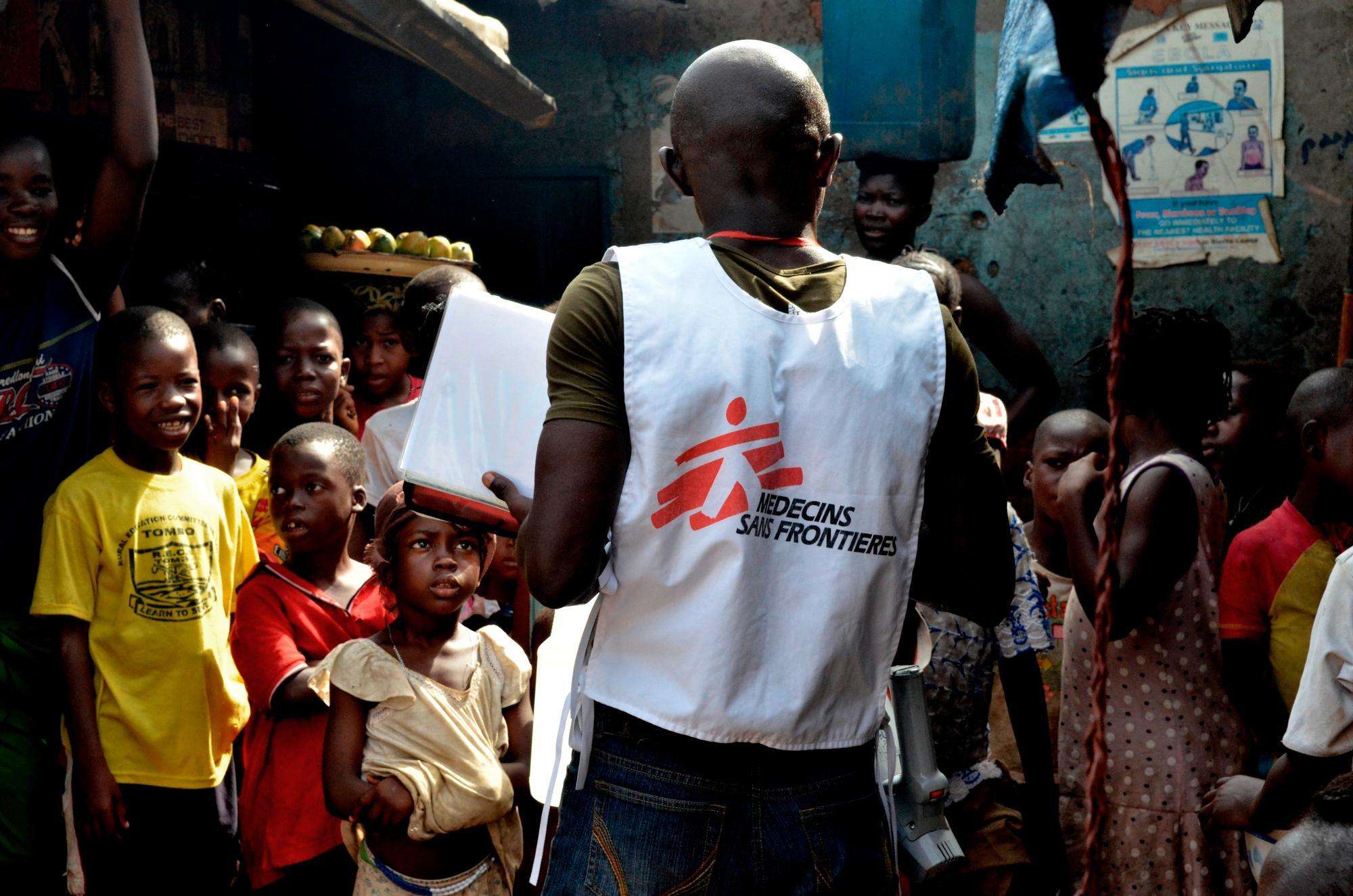FAQ: Our work
Find answers to frequently asked questions about our work
90% of our funding comes from individual donors. Learn how you can support MSF’s lifesaving care with a gift.
Find answers to frequently asked questions about our work

SIERRA LEONE 2015 © Alessandro Siclari
Answers to your frequently asked questions about Doctors Without Borders/Médecins Sans Frontières (MSF), its principles, and its programs.
For answers about making donations, please see our FAQ about donating.
For more information regarding possible fraudulent activity on social media or other websites, please see our page about online scams.
For answers about the recruitment process, see our recruitment FAQ. You can also read about our commitment to diversity, equity, and inclusion.
MSF-USA was established in 1990 by the French section. They wanted to have a presence in the US in order to expand their international fundraising, recruitment, and advocacy (New York was chosen because of its proximity to the UN and media). The US office has since expanded their role in field operations and is now managing programs in Colombia, Haiti, Liberia, Somaliland, and South Sudan.
In response to the COVID-19 pandemic, MSF ran temporary operations in the United States from April to October. MSF recognized that there was a clear need for more support for the response to the outbreak in the US. In key sites around the country, we worked with local authorities and partner organizations serving vulnerable communities with limited access to health care. We have now concluded these activities.
MSF teams collaborated with local authorities and community-based organizations on a wide range of projects, including work with people who are homeless or housing insecure in New York; migrant farmworkers in Florida; Native American communities in the Navajo Nation and Pueblos; and neglected and marginalized communities in Puerto Rico. Our teams also worked with staff in nursing homes and long-term care facilities in Michigan and Texas to offer training in infection prevention and control measures and support for mental health and wellness.
MSF works in more than 70 countries. We provide medical humanitarian aid where the needs are greatest, and often go to places where other organizations can’t or won’t operate. Historically, we have not run medical projects in the US, where there are significant public health resources and a large number of nongovernmental organizations working to meet the needs of neglected and underserved communities. MSF assesses the medical needs in the US periodically in response to natural disasters and other emergencies. In the past, we have not identified an area where the need for our medical assistance could not be met by another organization working in the US, or where our unique approach to responding to emergencies was required.
MSF’s regular work in the US includes communications to speak out about the suffering we witness, and to pursue direct engagement with the US government, United Nations, and other institutions in support of our medical humanitarian operations around the world.
We are also responding to the humanitarian crisis in Central America and Mexico, including projects to provide medical care for migrants and asylum seekers along the Mexican side of the border with the US. We have treated thousands of patients across the region who were detained and deported by the US.
MSF was started by French doctors and its first office was in Paris, but there are now 24 associations around the world.
● MSF has an International General Assembly (IGA), which is comprised of two representatives from each MSF partner section as well as two representatives per MSF Association.
● The IGA elects 12 representatives to sit on the International Board (IB). The IB is also comprised of the International President, the Vice President, the International Treasurer, and the Operational Directors. The IB has authority over issues such as resolving conflicts within MSF, opening and closing new entities, and holding sections accountable for implementing a shared vision.
● MSF also has several international committees that see to coordination among sections and sharing of information with regard to policy, management, communications, recruitment, and funding.
Financial
Human Resources
Operations
● MSF has no real "headquarters." Although the organization was established in France, it has grown into an international association with 24 independent sections worldwide.
● Five of those 24 sections are the Operational Centers or "OCs," the offices that directly manage all of our field programs or "operations." The OCs are in Paris, Geneva, Brussels, Amsterdam, and Barcelona. The remaining sections partner with the OCs and support their program operations, communications, recruitment, and fundraising. For example, the US, Japan, and Australia offices are in direct partnership with the OC in Paris.
© Médecins Sans Frontières 2024 Federal tax ID#: 13-3433452
Unrestricted donations enable MSF to carry out our programs around the world. While we try to honor requests to earmark, should we receive more gifts than we can use for a program, we will reallocate them where the needs are greatest.
For Donors
For Supporters
For Media
For Recruits
General Interest
© Médecins Sans Frontières 2024 Federal tax ID#: 13-3433452
Unrestricted donations enable MSF to carry out our programs around the world. While we try to honor requests to earmark, should we receive more gifts than we can use for a program, we will reallocate them where the needs are greatest.
Your gift helps us provide medical humanitarian aid for hundreds of thousands of people each year.
Learn more87%
Programs
12%
Fundraising
1%
Management & General Admin

We need your support to continue this lifesaving work.